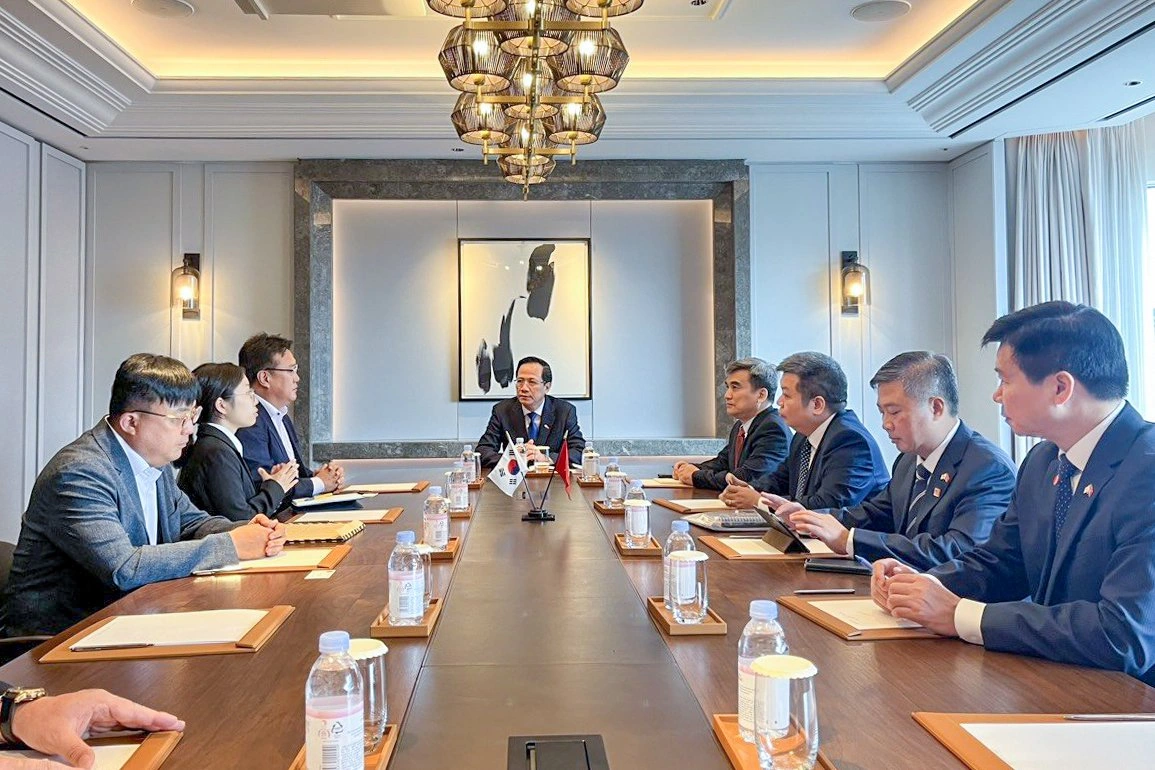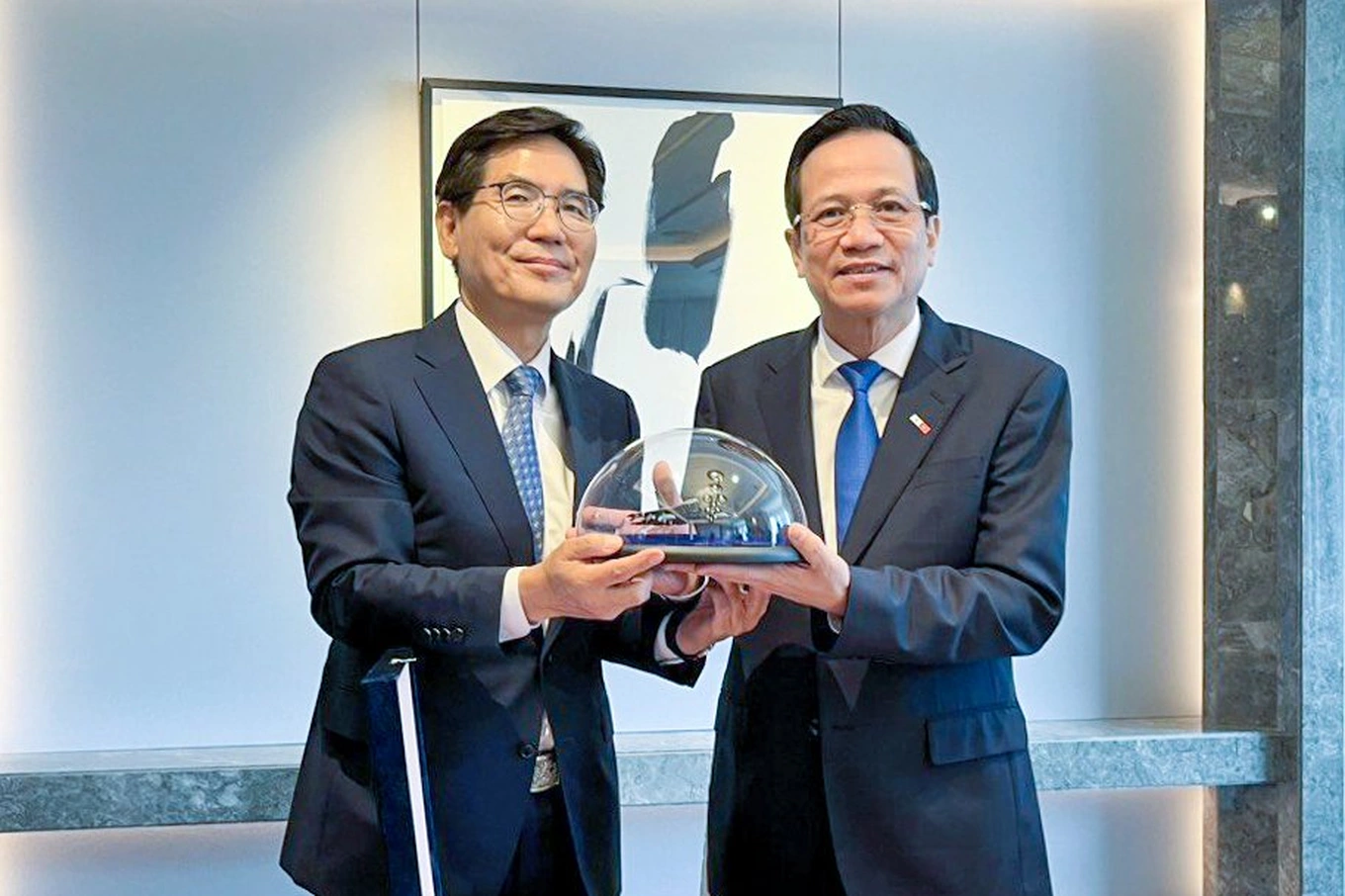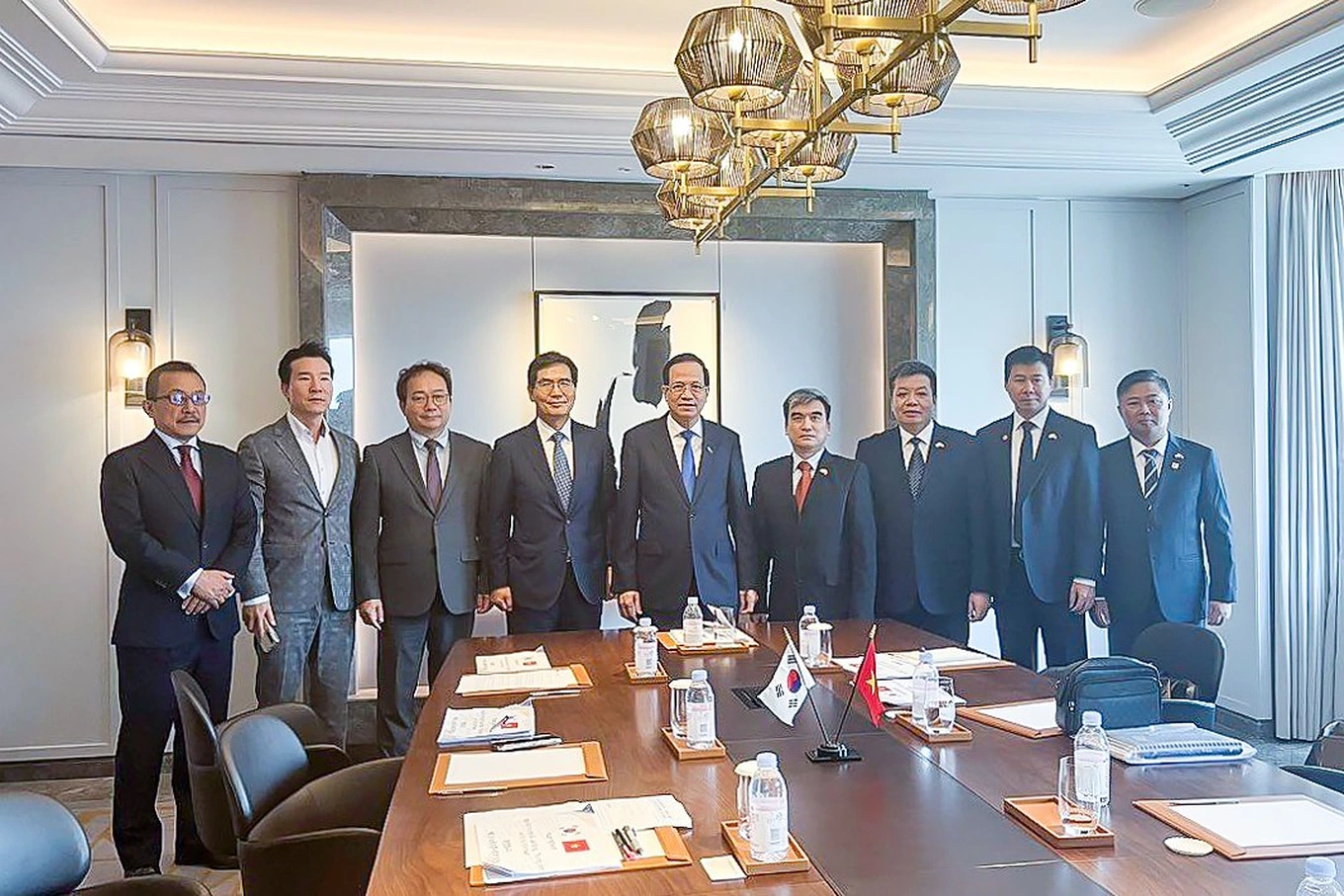(Dan Tri) – Working with large Korean corporations, Minister Dao Ngoc Dung said that Vietnam is shifting to training high-quality human resources with the goal of training 50,000 workers in the semiconductor industry.
On July 1, on the occasion of accompanying Prime Minister Pham Minh Chinh on his official visit to Korea, Minister of Labor, War Invalids and Social Affairs Dao Ngoc Dung spent time meeting with leaders of many large Korean corporations. to discuss cooperation contents between the two sides.
Receiving Mr. Kim Chang Hwan, Vice President and CEO of Hyundai Mipo Group, Minister Dao Ngoc Dung proposed that the two sides continue to expand labor cooperation for the benefit of both sides.

Minister Dao Ngoc Dung received Vice President and CEO of Hyundai Mipo Group (Photo: Le Binh).
Hyundai Mipo is one of 7 major Korean shipbuilding corporations receiving many foreign workers and is the shipbuilding enterprise receiving the most Vietnamese workers today.
Hyundai Mipo’s leader said that the group has more than 1,000 Vietnamese workers working, including 482 workers sent by 11 businesses with technical qualifications (E7 visa). According to the report, workers working at Hyundai Mipo receive a salary of more than 2.8 million won/month (nearly 60 million VND/month).
Noting that the Ministry of Labor, Invalids and Social Affairs has signed a cooperation agreement with Hyundai Mipo on workers under E7 visa, Minister Dao Ngoc Dung assigned the Department of Overseas Labor Management to continue coordinating with the group to train and send workers. go to Korea to work.
The Minister noted that Vietnamese companies must focus on skills training for workers when sending them to Korea to work.
Besides, according to the Minister, Hyundai Mipo also needs to create conditions for Vietnamese dispatching companies to cooperate in sending workers to Korea. The Minister suggested that the group pay more attention to the working conditions and regimes for Vietnamese workers, because this is a team with many advantages in the shipbuilding industry.

Minister Dao Ngoc Dung and Vice President of the Korean Aerospace Industry Association Kim Min Seok (Photo: Le Binh).
During a meeting with Minister Dao Ngoc Dung, Vice President of the Korean Aerospace Industry Association Kim Min Seok said that the association is cooperating with many Korean Government agencies to develop the aviation industry.
Korea will become one of the five global aerospace powers with revenue of 7,000 billion won and expected to reach 26,300 billion won by 2035.
With calculations that by 2023 there will be about 20,000 workers but human resources are lacking, this unit wants to discuss with relevant agencies to open visas for foreign workers to work in Korea.
The future of the Korean aerospace industry needs 59,000 workers with about 40,000 elite foreign workers, according to Mr. Kim Min Seok.
He said that currently, the association has opened a training center in Vietnam and trains 100 people each year. Commenting that Vietnamese people coming to Korea to work will contribute to the future development of the aerospace industry, Mr. Kim Min Seok suggested considering training in this industry in Vietnam.
Agreeing with the view that the development of the aerospace industry is inevitable, Minister Dao Ngoc Dung said this was also the content mentioned by the Korean President during his visit to Vietnam last year.
According to the Minister, Vietnam is shifting towards training high-quality human resources with the goal of training 50,000 workers in the field of semiconductor chips. In addition, schools in Vietnam are also focusing on training emerging professions.

Minister of Labor, War Invalids and Social Affairs Dao Ngoc Dung and leaders of units under the Ministry took commemorative photos with leaders of the Korean Aerospace Industry Association (Photo: Le Binh).
With the orientation of recruiting high-tech workers mentioned by the leaders of the Korean Aerospace Industry Association, Minister Dung emphasized that opening a new type of visa is necessary, so the association needs to link training with other companies. Vietnamese school.
“This is an industry with strategic significance so it requires strategic steps. The Korean side can invite Viettel to participate,” the Minister suggested.
Receiving Mr. IM Seung-Muk, Vice President of the Human Resources Department (HRD) of Korea, Minister Dao Ngoc Dung emphasized that HRD is an agency that Vietnam highly trusts.
Stating that the demand for Vietnamese workers to work in Korea is very high, the Minister welcomed the country’s increase in quotas granted to Vietnam, and asked both sides to speed up the selection process and cut out unnecessary steps. necessary.
Working with representatives of the Labor Relations Development Organization (KLES), Minister Dao Ngoc Dung emphasized that the relationship between employers and employees is very important.
Affirming that Vietnam is always interested in training professional foreign languages and manners for workers, the Minister asked the Korean side to better support Vietnam, thereby supporting the relationship between workers and employers. dynamic.
Meanwhile, the KLES representative suggested that there should be training programs so that workers can adapt to working in Korea. According to a representative of this organization, there are currently about 150,000 Vietnamese workers working in Korea under the EPS program.
On the same day, Minister Dao Ngoc Dung also spent time working with leaders of Mokpo city – where about 2,000 Vietnamese people reside and many businesses employ Vietnamese workers.
The Minister assessed Mokpo as a locality with a diverse economic structure and strengths in many fields, receiving workers from many countries, including many Vietnamese.
According to the Minister, in the coming time, Vietnam will prioritize and promote the provision of human resources to Korea, especially high-quality human resources to meet the needs of localities with great potential like Mokpo.
Hoai Thu (From Seoul, Korea)
